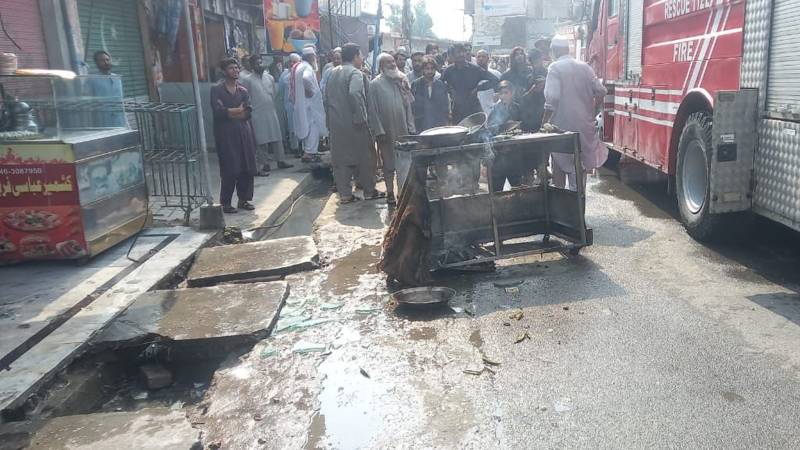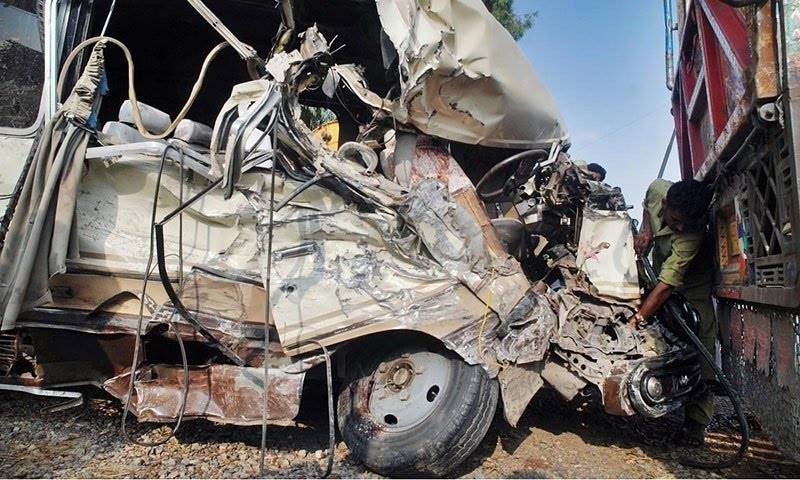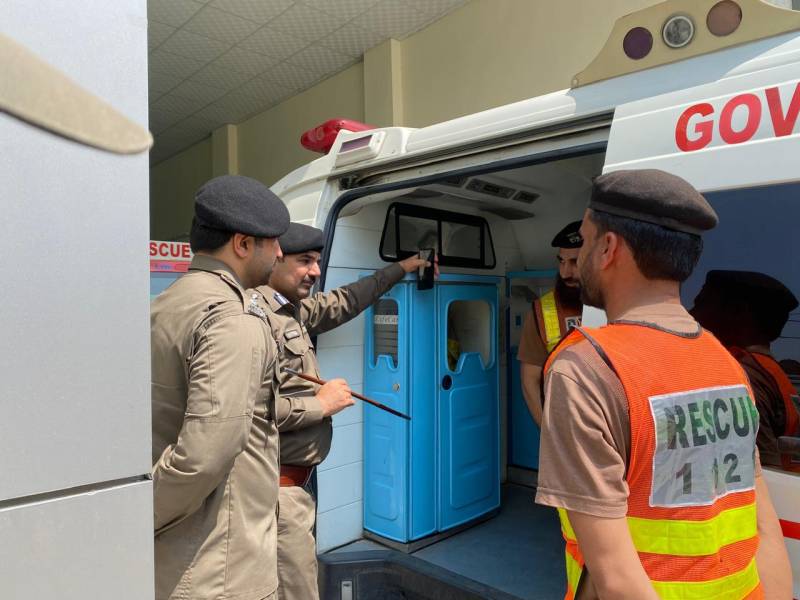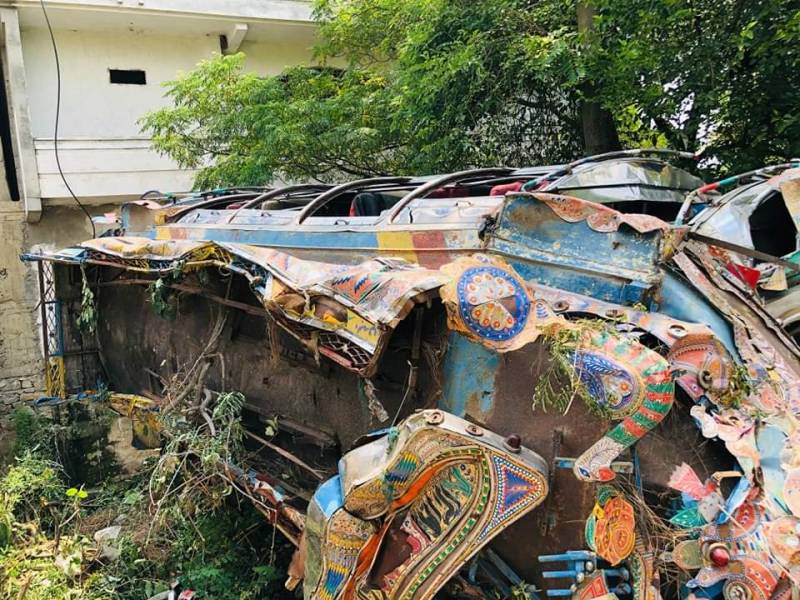
The rising number of traffic accidents in Swat has resulted in the loss of precious lives, with many people being disabled for life or an extended period. An increase in such incidents has also raised questions about the performance of the police.
According to data obtained from Rescue 1122 under the Right to Information Act, 6,347 traffic accidents have occurred in Swat over the past eight years, resulting in 123 deaths and 6,128 injuries.
In 2016, there were 221 accidents; in 2017, 301; in 2018, 399; in 2019, 407; in 2020, 848; in 2021, 1,644; and in 2022, 1,321. So far in 2023, 1,206 accidents have been reported.

Adnan Khan, who lost his life in a traffic accident in the Sheen area of Tehsil Khwazakhela in December 2023, was mourned by his father, Akbar Khan, who told The Friday Times–NayaDaur, "My 16-year-old son was taken by God in a traffic accident. He had gone out to buy bread in the evening and his body was brought back home at night."
The data reveals that there are 93 bus stands in Swat, of which 60 are legal and 33 are illegal
The lack of speed limit signs and enforcement in Swat is the primary reason for the increasing number of accidents. Most of the population lives along the roads, yet the administration remains silent.

Akbar Khan further told TFT-ND that the traffic system in Swat is in shambles and that the government and district administration have failed to strengthen traffic laws. The narrow roads and large vehicles are a deadly combination.
Swat is the third most populous district in Khyber Pakhtunkhwa, with a population of 2.3 million people, according to 2017 data. The total area of Swat is 5,337 square kilometres, with 300 kilometres of roads. The traffic department's data reveals that the number of accidents is increasing alarmingly, and the administration's silence is lamentable.
Rescue 1122 Swat spokesperson Shafiqa Gul told TFT-ND that the main reason for the accidents is recklessness. In Swat, most drivers are young and tend to drive motorcycles or cars at high speeds.

Shafiqa Gul explained that most accidents in Swat involve motorcycles, with many motorcycles colliding with each other or falling into deep ditches. She added that overspeeding is the primary cause of these accidents. She emphasized that young drivers are often emotional and impulsive, urging parents to prevent their children from unnecessary driving and to ensure timely maintenance of vehicles.
The Swat Traffic Department has deployed a fleet of vehicles to maintain traffic flow in the district. According to data obtained through the Right to Information Act, the traffic police have 12 pickup trucks, 2 trucks, 1 mobile container, 3 lifters, 4 flying coaches, 2 ambulances, and 72 motorcycles at their disposal. Additionally, the traffic police have set up 1 base camp, 76 checkpoints, and 685 traffic cones to ensure smooth traffic flow.
The data reveals that the main GT Road, which connects Mingora to other parts of the country, is the most accident-prone area. Other frequently accident-prone areas include the Fizaghat to Charbagh Road, Kabal, and the Matta main highway.

Superintendent Police Traffic Habibullah told TFT-ND that the main reasons for the increasing number of accidents are the lack of awareness among drivers and the absence of stringent traffic laws. He added that parents should not give their young children motorcycles or cars, as they are not capable of driving safely.
The Superintendent Police Traffic also emphasized the need for drivers to follow speed limits and avoid reckless driving. The traffic police have launched several awareness campaigns to educate drivers about traffic rules and safe driving practices. The police have also taken action against unlicensed and underage drivers, as well as those who violate traffic rules.
The data reveals that there are 93 bus stands in Swat, of which 60 are legal and 33 are illegal. The illegal bus stands are mostly located in Mingora, Khwazakhela, Madian, and Charbagh. The traffic police have also identified 33 non-custom-paid vehicles, which are a major cause of accidents in the district.
Professor Ali Rahman, a member of Swat civil society, told TFT-ND that most accidents in Swat are due to motorcycles, which are sold by private companies at low prices. He added that non-custom-paid vehicles, which are banned by the high court, are still being sold in large numbers and are a significant cause of accidents.
The traffic system in Swat needs substantial improvement, and the traffic police should take strict action against drivers who violate traffic rules. The district administration should also provide facilities to drivers, such as parking spaces, to help avoid accidents.

